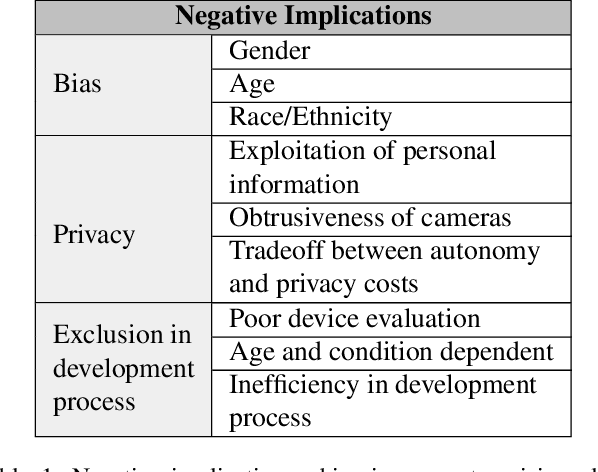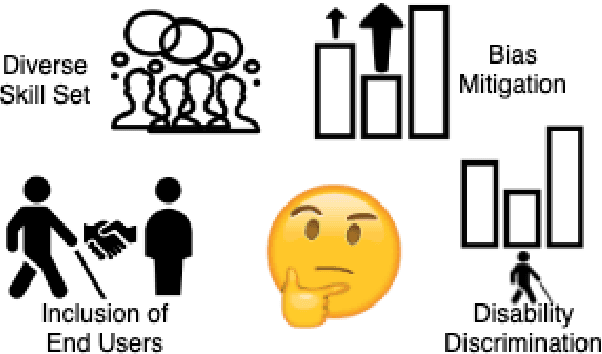Implications of Computer Vision Driven Assistive Technologies Towards Individuals with Visual Impairment
Paper and Code
May 20, 2019


Computer vision based technology is becoming ubiquitous in society. One application area that has seen an increase in computer vision is assistive technologies, specifically for those with visual impairment. Research has shown the ability of computer vision models to achieve tasks such provide scene captions, detect objects and recognize faces. Although assisting individuals with visual impairment with these tasks increases their independence and autonomy, concerns over bias, privacy and potential usefulness arise. This paper addresses the positive and negative implications computer vision based assistive technologies have on individuals with visual impairment, as well as considerations for computer vision researchers and developers in order to mitigate the amount of negative implications.
 Add to Chrome
Add to Chrome Add to Firefox
Add to Firefox Add to Edge
Add to Edge